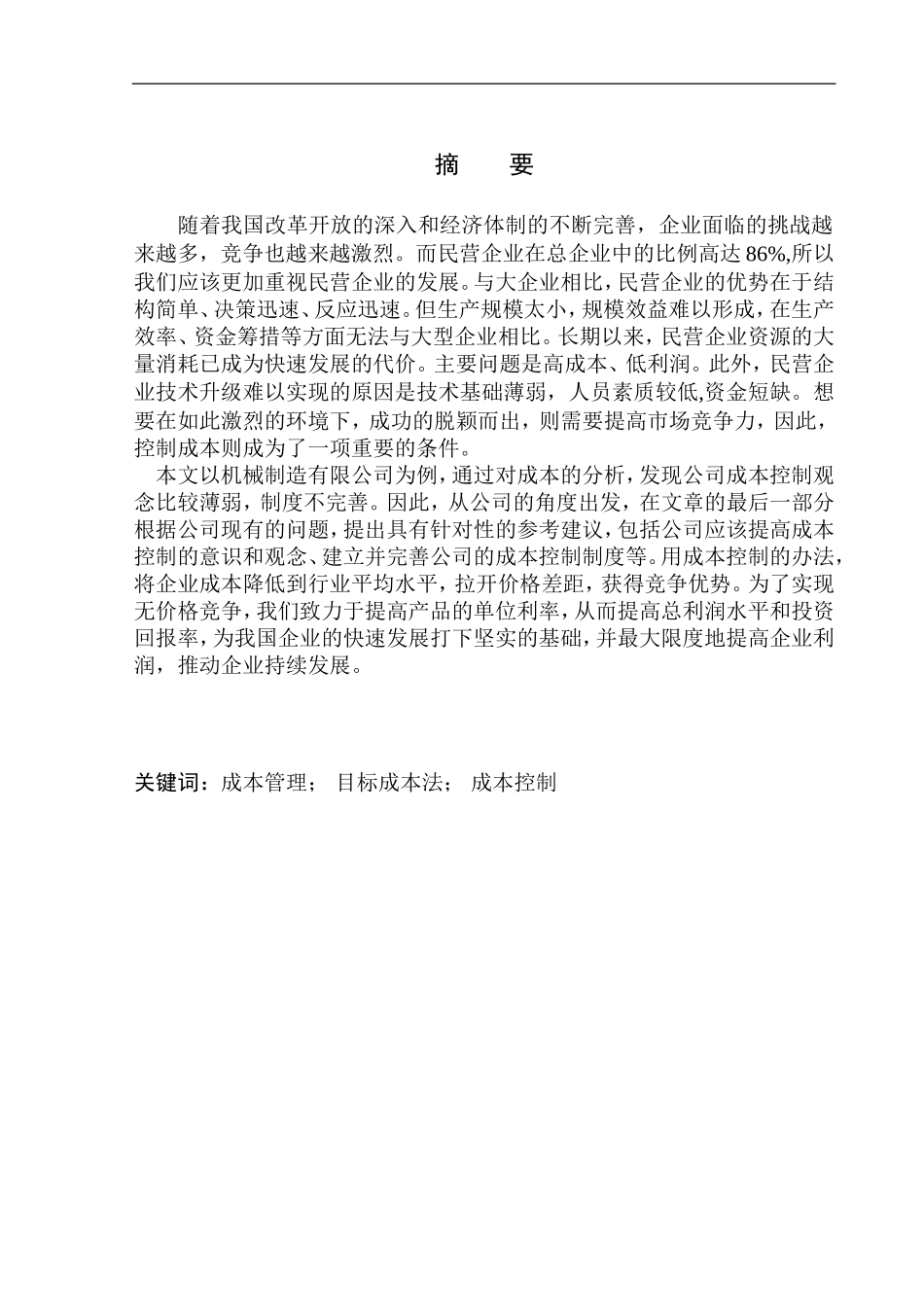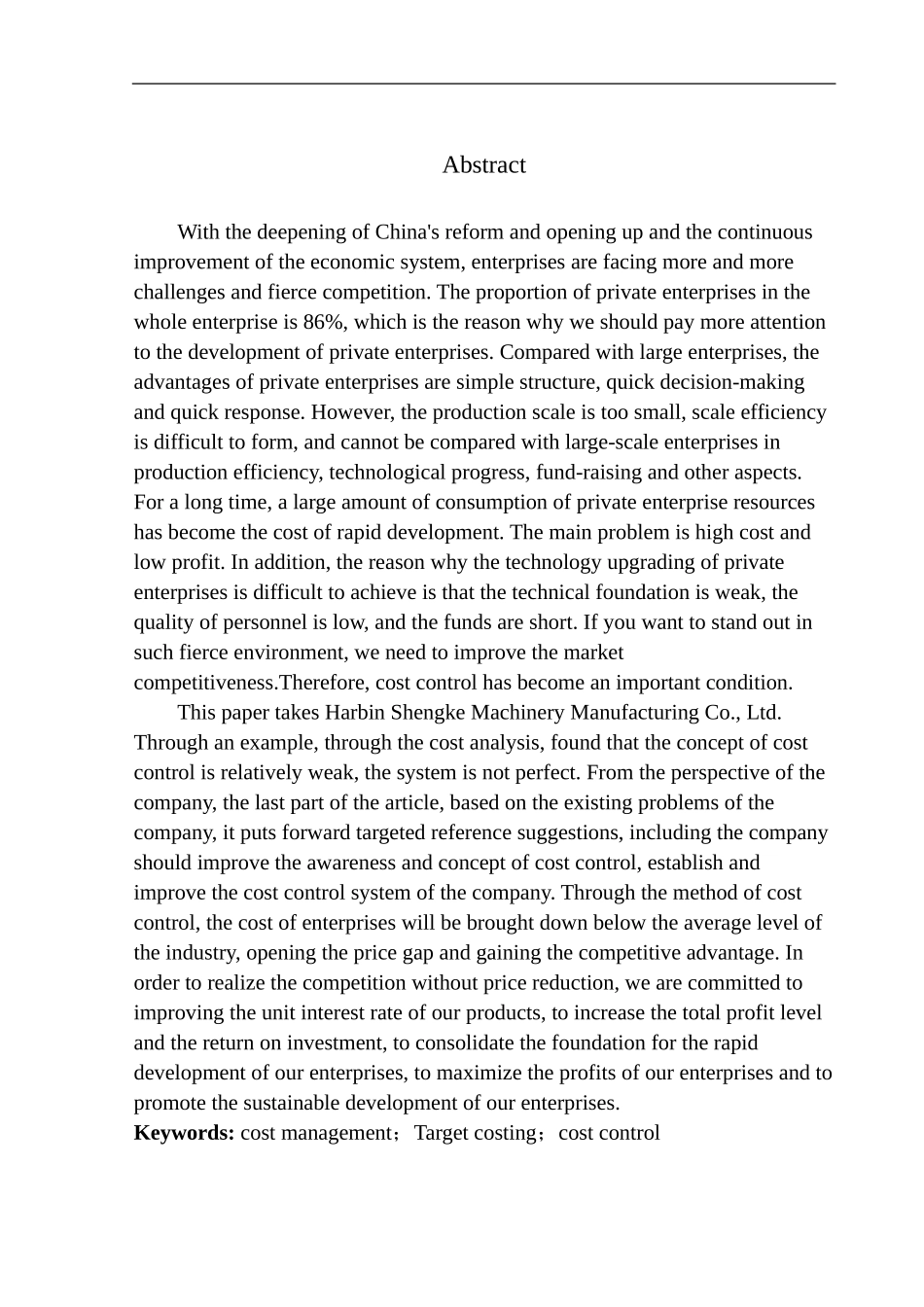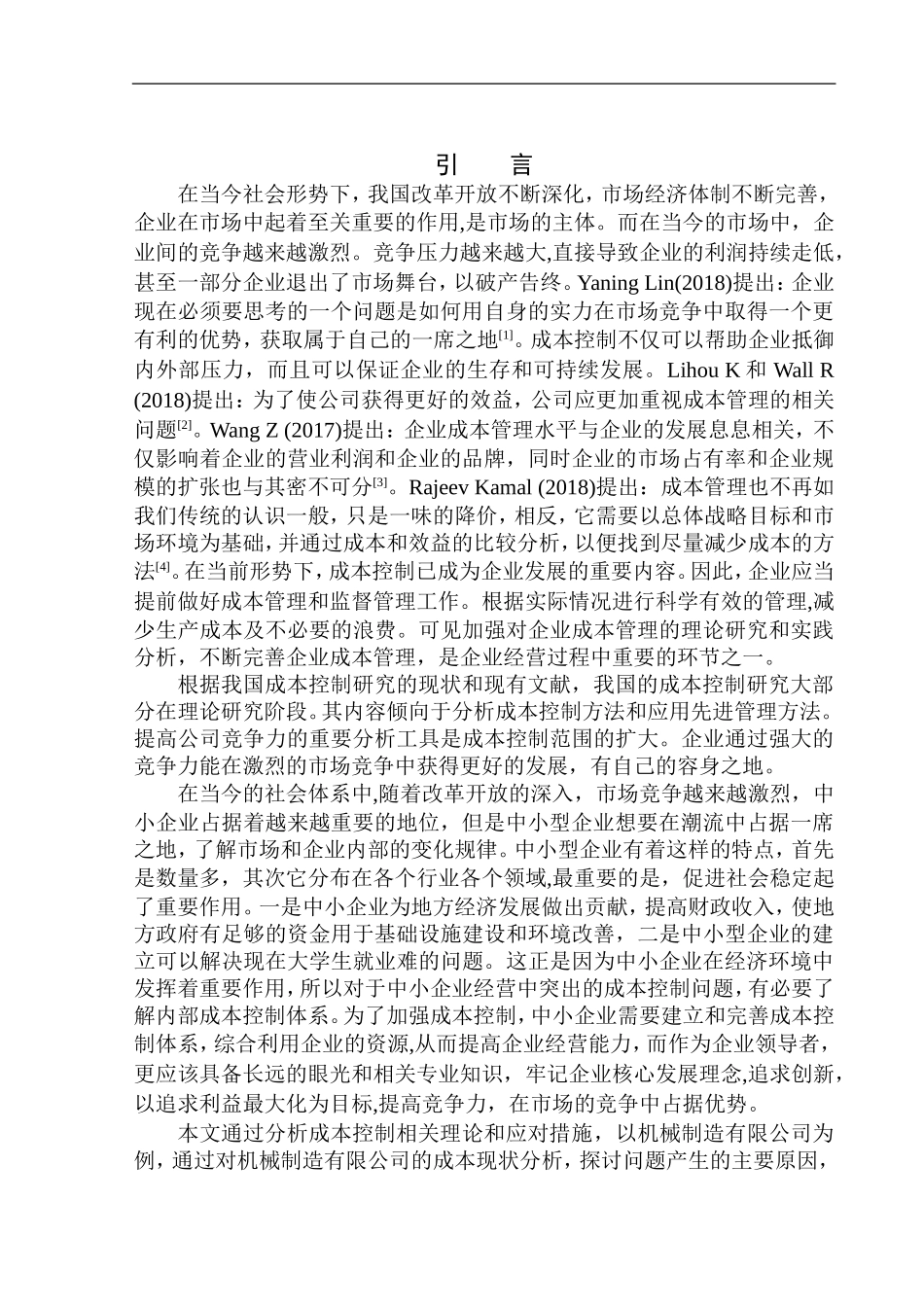摘 要随着我国改革开放的深入和经济体制的不断完善,企业面临的挑战越来越多,竞争也越来越激烈。而民营企业在总企业中的比例高达 86%,所以我们应该更加重视民营企业的发展。与大企业相比,民营企业的优势在于结构简单、决策迅速、反应迅速。但生产规模太小,规模效益难以形成,在生产效率、资金筹措等方面无法与大型企业相比。长期以来,民营企业资源的大量消耗已成为快速发展的代价。主要问题是高成本、低利润。此外,民营企业技术升级难以实现的原因是技术基础薄弱,人员素质较低,资金短缺。想要在如此激烈的环境下,成功的脱颖而出,则需要提高市场竞争力,因此,控制成本则成为了一项重要的条件。 本文以机械制造有限公司为例,通过对成本的分析,发现公司成本控制观念比较薄弱,制度不完善。因此,从公司的角度出发,在文章的最后一部分根据公司现有的问题,提出具有针对性的参考建议,包括公司应该提高成本控制的意识和观念、建立并完善公司的成本控制制度等。用成本控制的办法,将企业成本降低到行业平均水平,拉开价格差距,获得竞争优势。为了实现无价格竞争,我们致力于提高产品的单位利率,从而提高总利润水平和投资回报率,为我国企业的快速发展打下坚实的基础,并最大限度地提高企业利润,推动企业持续发展。关键词:成本管理; 目标成本法; 成本控制AbstractWith the deepening of China's reform and opening up and the continuous improvement of the economic system, enterprises are facing more and more challenges and fierce competition. The proportion of private enterprises in the whole enterprise is 86%, which is the reason why we should pay more attention to the development of private enterprises. Compared with large enterprises, the advantages of private enterprises are simple structure, quick decision-making and quick response. However, the production scale is too small, scale efficiency is difficult to form, and cannot be compared with large-scale enterprises in production efficiency, technological progress, fund-raising and other aspects. For a long time, a large amount of consumption of private enterprise resources has become...


